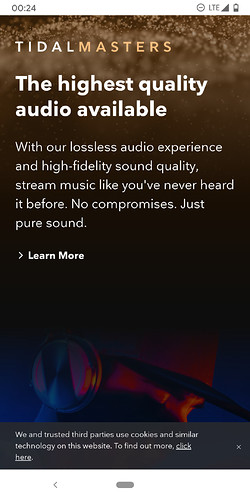This is too funny. It is now 2021 and in my line of work we still have to convince broadcasters to tag their media with ISRCs for performance reporting. Some do, most don’t. At least in the US.
It still the same then ![]() . Yes I had seemingly identical problems over here back at the turn of the century.
. Yes I had seemingly identical problems over here back at the turn of the century.
I was also the sucker who had to introduce the concept of ISRC to the major US record companies at copyright department level during a meeting in NYC. ISRC was originally an idea from Philips and Polydor adopted later as an international standard. This was pre- UMG so Philips and Polydor were wholly Dutch or German respectively. Boy did I get a “Not Invented Here” reception ![]() ,
,
The biggest hurdle I had ( back in the UK) was getting people to understand that once the code was given it was there forever. Many immediately tried to game the code by using elements to describe the sales price category it was in with no understanding that the same recording could be full price, mid-price later then budget but would retain the code.
That’s an interesting backstory Pete, thanks for sharing! I could speak tomes as to the pervasive mislabeling amidst broadcasters, which is mostly—and unfortunately—a result of limited resources station-side. This lead SoundExchange (a Performing Rights Organization in the US) to even offer ISRC matching where stations could upload their catalog and receive it with ISRCs, yet most small-to-medium broadcasters couldn’t even be bothered to do that. Part of my company’s services is we attempt to fill in these blanks as performances are reported, but it’s not a foolproof solution, as obviously the combination of track-artist-album can have multiple ISRCs due to multiple editions, market variations, etc.
Sorry for the temporary hijack, back to the regularly-scheduled MQA commentary: I have no problem with MQA. Some tracks I prefer in MQA, some in lossless from Qobuz, I am just grateful that there are so many choices to pick from, all from the comfort of my music room. Although I still remember the fondness of yore when browsing records at a, well, record store, and barely containing my eagerness to get back home with the new album to audition.
Hi Greg,
I would add an important third issue, and apologize for not mincing words: (3) MQA/Meridian and Tidal are directly lying to the public.
It is definitely not an original Master. It is a lossy rendition of the master. This is Tidal’s actual website, claiming it is the highest quality audio available and lossless. These are a flat out lies.
Thank you very much for posting this video.
I do have a problem with how MQA is represented, but I dissociate this from my listening experience, which is largely enjoyable with a wide catalog.
I also have a problem with Qobuz, as every once in a while their stream has a bout of interruptions, like buffering. Switching to Tidal at that time results in a smooth stream, so it’s not a network issue on my end.
Bottom line, I sort of need both for the time being.
Worthwhile checking your account settings and that you are not allowing it to cache everything that you stream resulting in an overflowing cache.
In the past ( around 4 years ago) I too suffered from lots of buffering using their desktop player app. I happened to swap the cable to another port on my router and, hey presto, no more buffering issues. No idea why.
Thanks Pete! I’m streaming directly off the dCS, and didn’t see a place in Mosaic to manage provider-specific settings. I’ll check the account later today via their site. My network’s fine, both internally and in terms of Internet connectivity. As mentioned, this only occurs with Qobuz—and, in all fairness, quite infrequently—but nothing like being deeply-absorbed into some material only to have it abruptly pause. It’s highly annoying.
Mosaic just reflects what is going on with your account at Qobuz. So if you make a change in Mosaic you will find it reflected immediately in other views of your Qobuz account such as on a phone app. Conversely any change that you make to your Qobuz account via a Qobuz app will be reflected in Mosaic ( even if it is not specifically displayed there).
The Qobuz API as used in Mosaic does not display all of the options available for your account as it is really restricted to various modes of navigation and play. For example if you set your account using the Qobuz desktop app to play everything as MP3 then what you will get out of Mosaic and Qobuz will be MP3 even though data resolution cannot be changed there.
You really need to preferably download the Qobuz desktop player to your computer - you won’t find any of this on the Qobuz website which is basically a sales tool. When you have the desktop player you open your account by clicking your identity in the top right corner. You will find all sorts of options there including emptying and resizing the cache ( which will still fill even if you only use Mosaic as a play control).
Got it!. So pretty much like Tidal then. Will give it a try later on. Appreciate your time.
